Over the past years, the work of settling post-war unexploded ordnance and toxic chemical consequences has been carried out seriously and attained many significant results. However, we have just partly resolved the serious consequences of the wars. Therefore, more than ever, it is necessary to accelerate this profoundly humane work.
Vietnam is among the countries suffering the severest consequences of post-war bombs, mines, and toxic chemicals. Fully aware of the impacts by the post-war unexploded ordnance and toxic chemicals on the environment, the people’s health and life, and the socio-economic development, since the country was reunified, our Party and State have paid special attention to handling the post-war unexploded ordnance and toxic chemical consequences and regarded this as an important, urgent, regular, long-term task. Accordingly, the Government and Central offices have closely led and directed the settlement of post-war unexploded ordnance and toxic chemical consequences while localities have actively conducted national action programs/projects for this profoundly humane work. Despite economic hardships, annually, the State has spent thousands of billions of VND on the settlement of post-war unexploded ordnance and toxic chemical consequences. At the same time, it has actively called for and mobilized the cooperation on this work both at home and abroad.
With high responsibility, resolve, and tireless efforts by sectors, authorities, and the entire society as well as the support of foreign governments and international organizations, over the past years, the work of settling post-war unexploded ordnance and toxic chemical consequences have achieved important results. We have handled millions of bombs and mines and hundreds of tons of toxic chemicals and toxin-contained weapons and means, while cleaning hundreds of thousands of hectares of land contaminated by toxins and Agent Orange/dioxin, thereby contributing to recreating the land, ensuring the safe environment for production and the people’s life, reducing accidents and damages caused by unexploded ordnance, rehabilitating victims of unexploded ordnance and toxins, and stabilizing their life.
Although this work has been carried out across the country, its results have yet to meet the requirements. There remain limitations in mechanisms, policies and resources for supporting and rehabilitating victims of unexploded ordnance and Agent Orange/dioxin. This is mainly because the coordination between ministries, sectors and localities has yet to be maintained strictly; resources and technologies remain limited. Meanwhile, the number and area of unexploded ordnance and land contaminated by toxins and dioxin are huge and complicated.
In such backdrop, to step up the settlement of post-war unexploded ordnance and toxic chemical consequences, sectors, authorities, and relevant offices and units should focus on the following points.
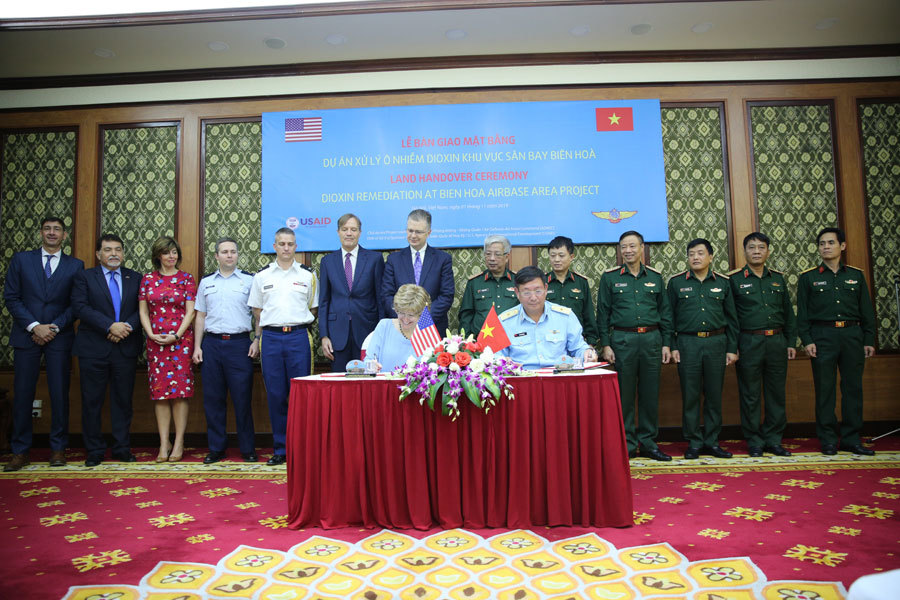 |
First, enhancing and improving the effectiveness of propagation and education related to the settlement of post-war unexploded ordnance and toxic chemical consequences.
To do so, the Government, especially the National Steering Committee for the settlement of post-war unexploded ordnance and toxic chemical consequences and its Standing Agency, ministries and localities should coordinate their leadership and direction in accelerating information, education and propagation related to this important work. Focuses should be placed on more deeply and widely introducing and disseminating the guidelines and viewpoints by the Party and Government on the settlement of post-war unexploded ordnance and toxic chemical consequences, particularly the Secretariat’s Directive 43-CT/TW, dated May 14, 2015, on “enhancing the Party’s leadership over the settlement of consequences of toxins used by the US in Vietnam War”, the National Action Program for settling bomb and mine consequences, the Government’s Decree 18/2019/NĐ-CP, dated February 1, 2019, on “managing and performing the work of settlement of post-war unexploded ordnance and toxic chemical consequences, and the Directive 05/CT-BQP by the Ministry of National Defence (MND) on implementing projects/programs on handling toxic chemicals/dioxin within the Military.
It is essential to continue to disseminate the impacts and consequences, introduce the measures for preventing and avoiding accidents and injury caused by post-war unexploded ordnance and toxic chemicals, and propagate the results of the projects, creative, effective models and approaches as well as difficulties, challenges and new requirements for this work. By doing so, we could raise the public awareness and achieve a sense of unity between sectors, social organizations, and the people towards the urgent task which demonstrates our regime’s humanism. Particularly, it is vital to step up the work of external propagation related to the settlement of post-war unexploded ordnance and toxic chemical consequences in Vietnam; to closely combine propagation with struggle for justice via proper measures so that international and non-governmental organizations could understand more the serious consequences of post-war unexploded ordnance and toxic chemicals, our Party and State’s resolve, and the challenges for this issue, thereby gaining more support and aid from the international community.
Second, continuing to complete mechanisms, policies and laws as the basis for stepping up the settlement of post-war unexploded ordnance and toxic chemical consequences.
Grounded on directives, resolutions and decisions by the Party, Government and MND, competent offices should continue to perfect legal normative documents on the settlement of unexploded ordnance and toxic chemicals properly and practically. In the medium term, the Standing Office of the National Steering Committee for the settlement of post-war unexploded ordnance and toxic chemical consequences should quickly draw up the Circular on guiding the execution of the Government’s Decree 18/2019/NĐ-CP, dated February 1st 2019 on managing and performing the work of settling post-war unexploded ordnance and toxic chemical consequences and then submit it to the MND for approval. Besides, it should focus on reviewing, supplementing and completing documents on national action plans/programs for the settlement of post-war unexploded ordnance and toxic chemicals as well as regulations and national technical standards for the environment related to the complete settlement of toxic chemicals/dioxin, while amending and supplementing legal documents concerning the policies for victims of bombs, mines, and toxic chemicals.
To overcome difficulties and accelerate the settlement of post-war unexploded ordnance and toxic chemicals, it is necessary to build and complete the system of policies and mechanisms for managing the bomb, mine clearance and the toxic chemical settlement, mobilizing the support, coordinating the operation at national level, and mobilizing, managing and coordinating the resources for the settlement of unexploded ordnance and toxic chemical consequences. Over the past years, many projects and missions regarding bomb, mine clearance and toxic chemical settlement have been carried out slowly and ineffectively due to insufficient information and ineffective coordination between units and localities, which has led to the overlapping investments. Thus, it is important to complete the mechanisms and regulations for collecting, updating, providing and sharing the information and national database on bomb, mine and toxic chemical contamination as the basis for formulating strategies and plans on the clearance and settlement as well as perfecting the mechanisms for coordination between state offices, localities, and units in charge of this work, thereby ensuring close cooperation, promoting the role of each ministry, sector and locality in the process in line with the plans for socio-economic development and defence-security consolidation.
Third, concentrating on building the forces and investing in equipment, technology and other resources for raising the capability in the settlement of post-war unexploded ordnance and toxic chemicals.
This matter acts as a decisive factor in the progress, quality and effectiveness of the settlement of post-war unexploded ordnance and toxic chemical consequences in the coming time. Thus, due attention should be paid to consolidating the structure, renewing technology, modernizing equipment, and improving the capacity of the forces in charge of bomb, mine clearance and toxic chemical settlement. First of all, it is vital to make the Engineer Corps and the Chemical Corps capable of playing the core role in this mission across the country and within the ASEAN region and readily joining the UN peacekeeping operations. The Engineer Corps, Chemical Corps, military regions and other army corps should continue to consolidate their organizational structure, raise quality of training, refresher courses, and exercises in order to improve the political zeal, professional competence, and skills in the settlement of post-war unexploded ordnance and toxic chemicals among the forces in charge of this task. The MND should advise the Government on mobilizing human, material, and technical resources and investing in modern equipment and technologies. At the same time, it is necessary to accelerate the application of technological advancement, especially achievements of the 4th industrial revolution to designing, manufacturing, and using modern technical equipment, meeting the requirements for the settlement of post-war unexploded ordnance and toxic chemicals in both long and short terms.
Fourth, enhancing international cooperation in the settlement of bomb, mine consequences and Agent Orange/dioxin.
As the amount of post-war bombs and mines and the area of contaminated land are large and complicated, with the existing progress rate, by 2050, it is estimated to liberate 800,000 hectares of land, equivalent to 15.22% of the total area of contaminated land. Thus, while promoting the internal strength, we need to actively gain the support of the international community, expand cooperation, and mobilize external strength associated with internal strength in the process. Over the past years, we have proactively worked with and encouraged several countries, international organizations and sponsors to support the settlement of post-war unexploded ordnance and toxic chemicals, and obtained positive results, thereby speeding up the cleaning of land contaminated by bombs, mines, and toxic chemicals, taking care of and supporting the victims. It should be noted that we have cooperated with America and international organizations in accomplishing the settlement of toxic chemicals/dioxin in Da Nang Airport and continuing to handle toxic chemicals in Bien Hoa and Phu Cat Airports, and other areas, such as A So and A Luoi (Thua Thien Hue province), Sa Thay and Ngoc Hoi (Kon Tum province). Bringing into play those results, in the upcoming time, we need to further step up international cooperation in this field. The Government and relevant ministries, sectors and offices should proactively make plans to cooperate with offices of the UN, countries, and international and non-governmental organizations in settling unexploded ordnance and toxic chemical consequences, while continuing to encourage the U.S. Administration to support the settlement of post-war unexploded ordnance and toxic chemical consequences. To that end, it is important to employ various forms of cooperation, such as experience and information sharing, transfer of technologies, personnel training and financial aid. Moreover, competent offices should advise the Government on creating a favourable condition for countries and potential sponsors to directly involve in the national action programs so as to contribute to accelerating the settlement of post-war unexploded ordnance and toxic chemical consequences in Vietnam.
With the political resolve of the whole Party, Military and people, the effort of ministries, sectors, and unions as well as the active support of countries and international organizations, we will further speed up the settlement of post-war unexploded ordnance and toxic chemical consequences to make contributions to the country’s renewal and economic development and the people’s peaceful life.
Sr. Lt. Gen. Nguyen Chi Vinh, Member of the Party Central Committee, Standing Member of the Central Military Commission, Deputy Minister of National Defence, Standing Member of the National Steering Committee 701



_thumb_720.jpg)








_thumb_720.jpg)

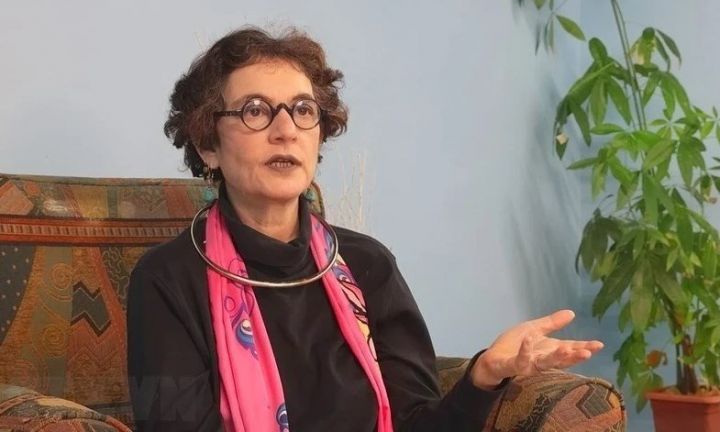









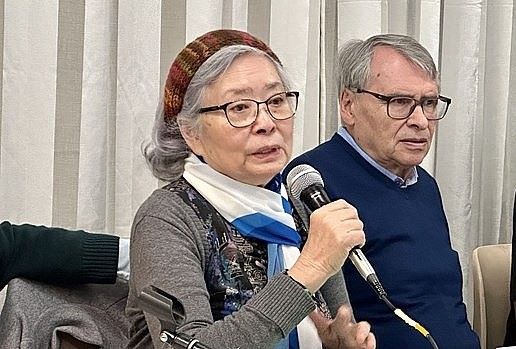
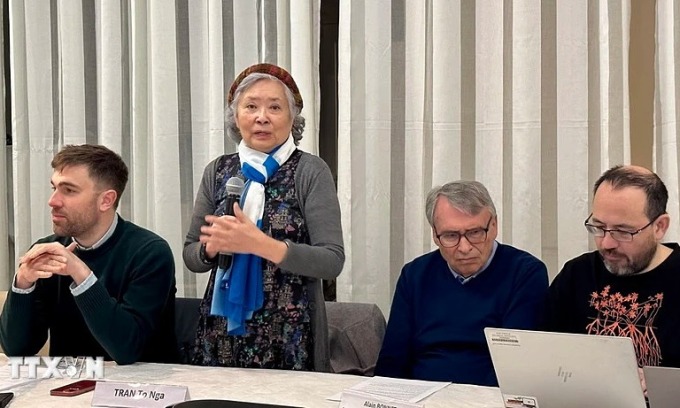

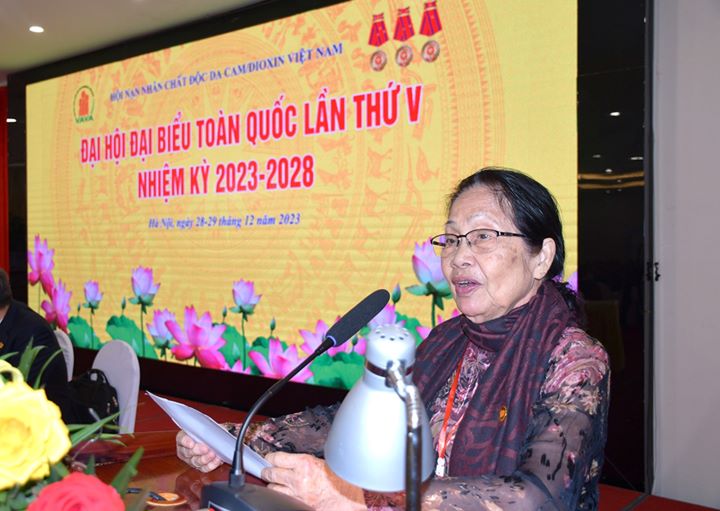



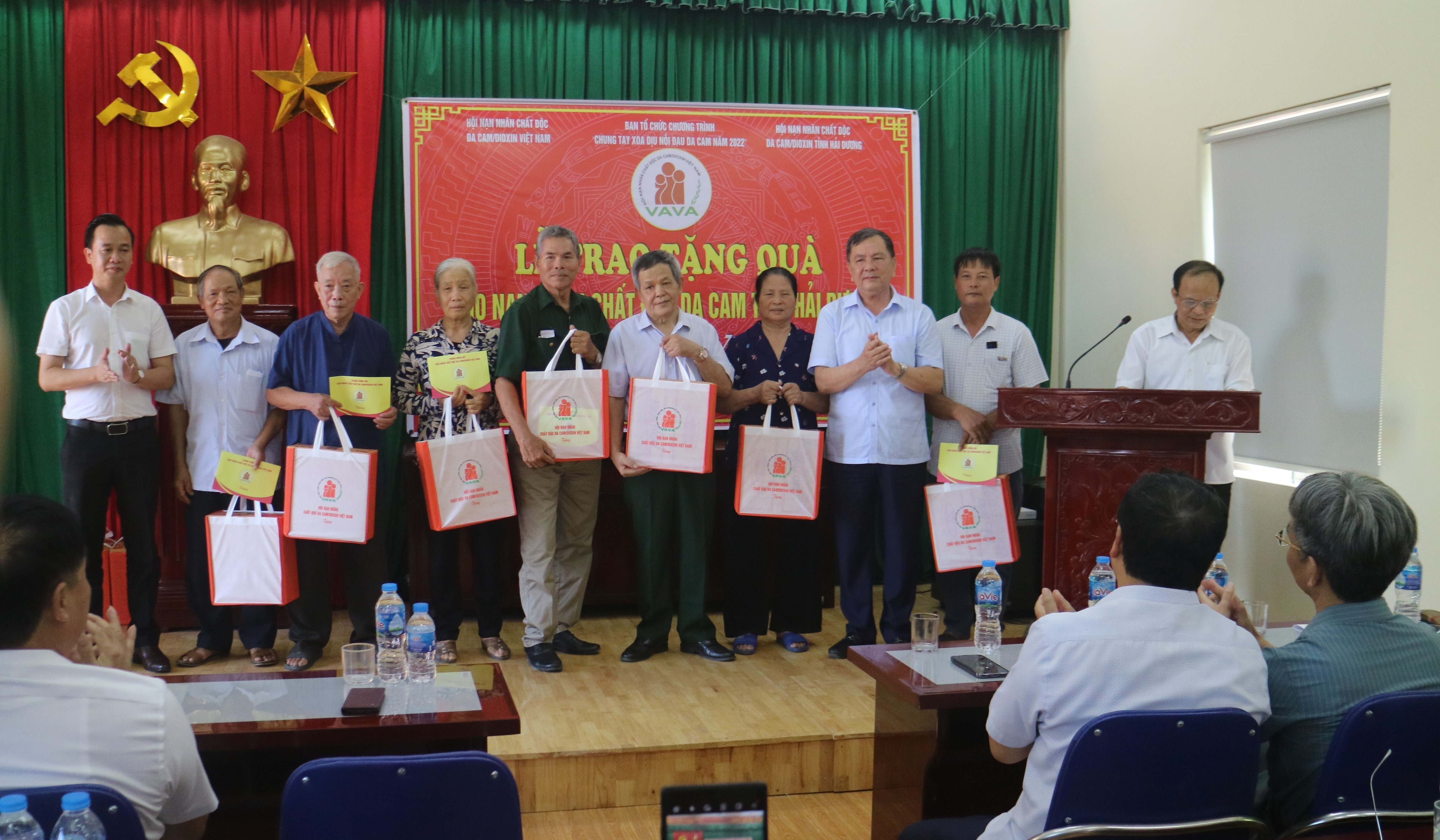
Comment